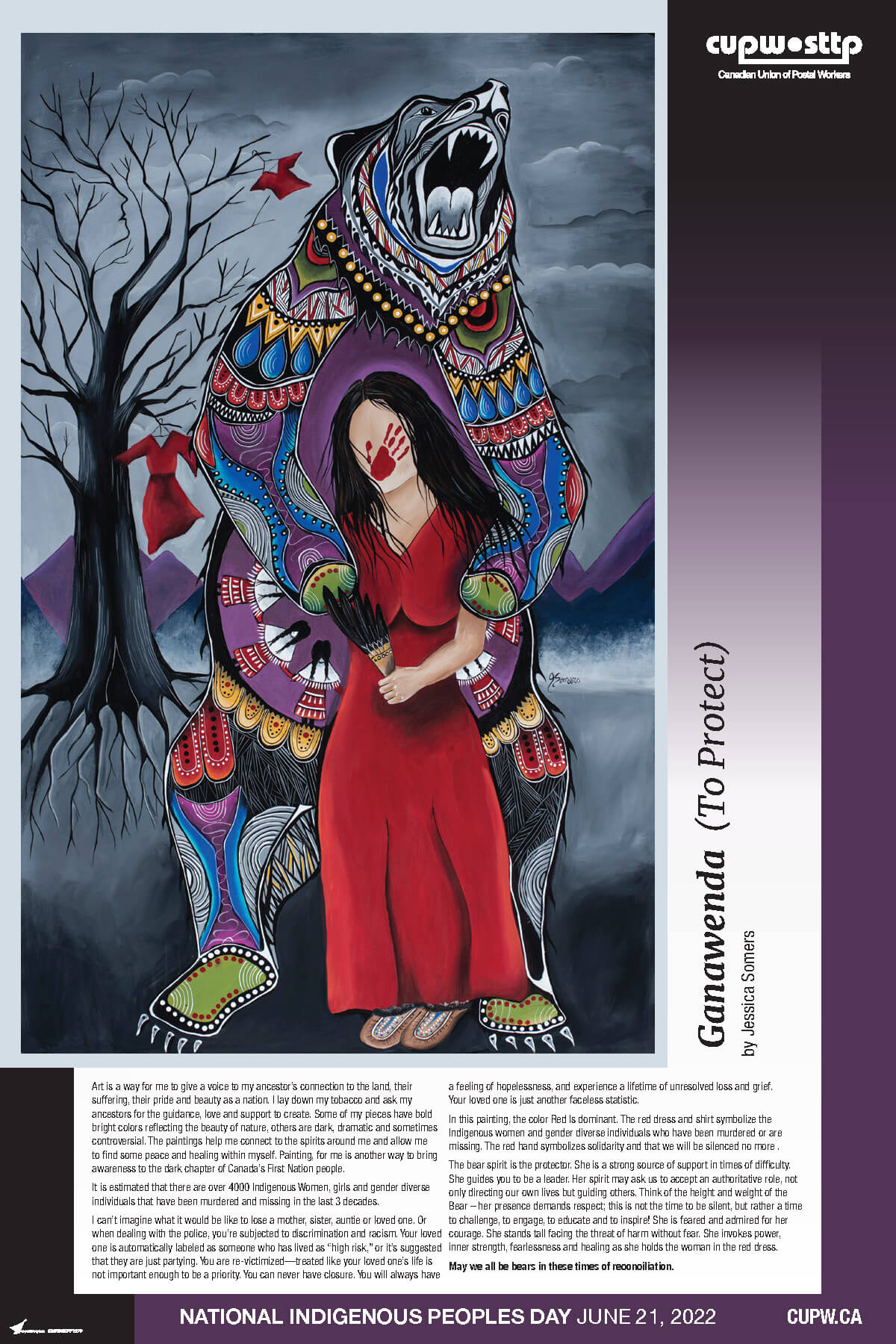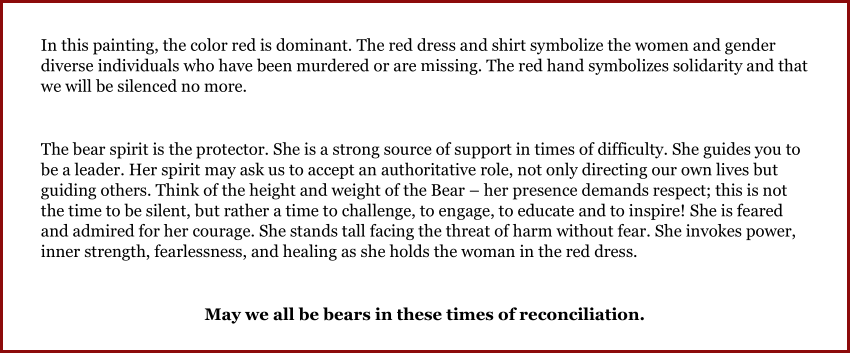
June 17, 2022
CUPW calls upon its members and society more broadly, to be awakened to the abominable effects of colonization on Indigenous peoples on whose land we live, work and learn. We call upon all to raise awareness of the trauma that settlers have visited upon our first peoples through genocidal practices, discrimination, and continued sweeping aside of their pain and their claims.
It is anticipated that 6,000 children’s graves are yet to be found at the sites of Residential Schools. Thus far, the remains of over 1,200 victims of abuse and murder have been discovered. Indigenous children were captured by the State or otherwise made to leave their homes and communities to be assimilated into settler society, and we know the abuse was pervasive. The last Residential School closed its doors in 1996. This history is still very difficult for Indigenous people to grapple with, and the intergenerational trauma resulting from it still has long-reaching effects on people.
It is estimated well over 4,000 women, girls and gender diverse Indigenous persons have been murdered. It is known that colonial institutions such as the police, corrections and hospitals have mistreated, abused and/or killed our Indigenous brothers, sisters and comrades in numbers that are staggering when examined in relation to white settlers.

Every year, CUPW commissions a work of art to underscore National Indigenous Peoples Day. This year’s poster is of a painting entitled “Ganawenda” which means to protect. Jessica Somers, the artist, describes it as follows:

Jessica is an Odanak Abenaki and Métis. She uses her artwork as “self-reflection, a way of seeking peace and sharing knowledge…as a way to honour her ancestors.” This artist uses a variety of mediums in her work and is inspired by the teachings of elders in her community.
On National Indigenous Peoples Day, June 21, let us honour Indigenous Peoples by participating in Summer Solstice activities, learning about Indigenous customs and traditions, and remembering the wisdom and the sacrifice of Indigenous peoples.
We all have a stake in decolonizing this country, and each can play a role in helping to protect a sacred way of life and seeking remedy to the ongoing injustice that colonialism continues to mete out on the First peoples of this land.
In Solidarity,
